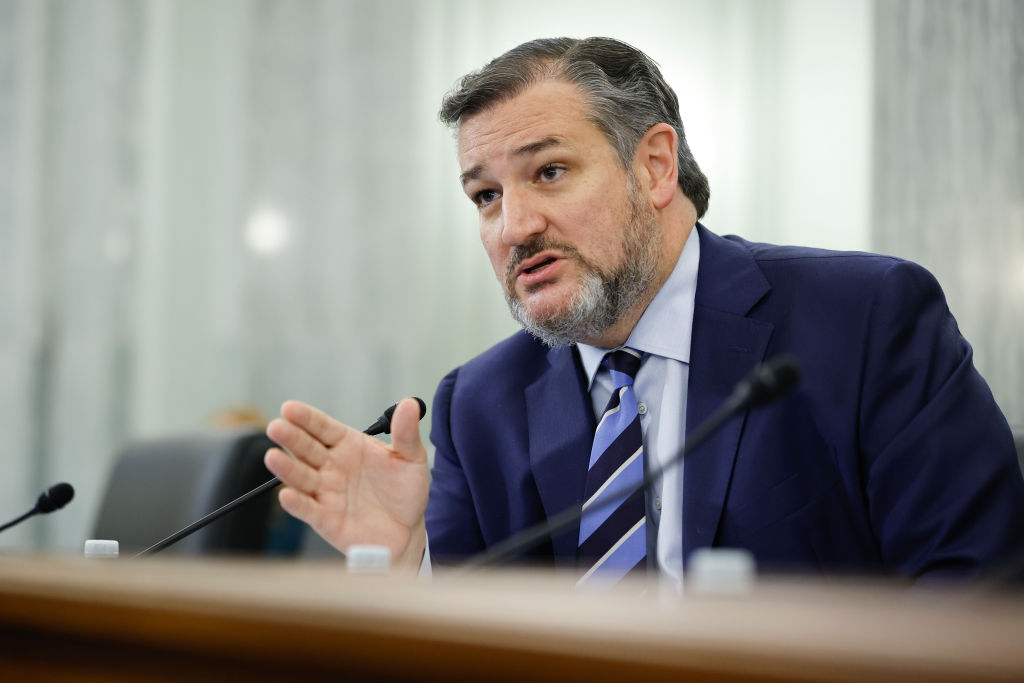Cruz and Schumer strike deal on ambassadors, Russian sanctions bill


A free daily email with the biggest news stories of the day – and the best features from TheWeek.com
You are now subscribed
Your newsletter sign-up was successful
In its final acts before the Christmas break, the Senate confirmed dozens of President Biden's nominees, starting Friday night and ending around 2 a.m. Saturday morning, The Washington Post reports.
Former Chicago Mayor and Obama White House Chief of Staff Rahm Emanuel was confirmed as ambassador to Japan, despite "no" votes from three Democratic senators who questioned his record on race relations.
The Senate also confirmed ambassadors to Ireland, Spain, the European Union, Vietnam, Somalia, Bahrain, Cameroon, and several other countries and international bodies, as well as nine federal judges.
The Week
Escape your echo chamber. Get the facts behind the news, plus analysis from multiple perspectives.

Sign up for The Week's Free Newsletters
From our morning news briefing to a weekly Good News Newsletter, get the best of The Week delivered directly to your inbox.
From our morning news briefing to a weekly Good News Newsletter, get the best of The Week delivered directly to your inbox.
More than 50 ambassadorships have remained vacant since the beginning of the Biden administration because Sen. Ted Cruz (R-Texas) refused to allow quick confirmation votes. Cruz's blockade was meant as a protest against Biden's permissive stance on the Nord Stream 2 pipeline. Cruz argues that the pipeline, which would carry natural gas from Russia to Germany, would strengthen Russia's influence over Germany and other European nations.
In return for Cruz allowing the confirmation votes to go ahead, Majority Leader Chuck Schumer (D-N.Y.) agreed to allow Cruz's Russian sanctions bill to be debated and voted on by mid-January.
A free daily email with the biggest news stories of the day – and the best features from TheWeek.com
Grayson Quay was the weekend editor at TheWeek.com. His writing has also been published in National Review, the Pittsburgh Post-Gazette, Modern Age, The American Conservative, The Spectator World, and other outlets. Grayson earned his M.A. from Georgetown University in 2019.
-
 The environmental cost of GLP-1s
The environmental cost of GLP-1sThe explainer Producing the drugs is a dirty process
-
 Greenland’s capital becomes ground zero for the country’s diplomatic straits
Greenland’s capital becomes ground zero for the country’s diplomatic straitsIN THE SPOTLIGHT A flurry of new consular activity in Nuuk shows how important Greenland has become to Europeans’ anxiety about American imperialism
-
 ‘This is something that happens all too often’
‘This is something that happens all too often’Instant Opinion Opinion, comment and editorials of the day
-
 Epstein files topple law CEO, roil UK government
Epstein files topple law CEO, roil UK governmentSpeed Read Peter Mandelson, Britain’s former ambassador to the US, is caught up in the scandal
-
 Iran and US prepare to meet after skirmishes
Iran and US prepare to meet after skirmishesSpeed Read The incident comes amid heightened tensions in the Middle East
-
 EU and India clinch trade pact amid US tariff war
EU and India clinch trade pact amid US tariff warSpeed Read The agreement will slash tariffs on most goods over the next decade
-
 Israel retrieves final hostage’s body from Gaza
Israel retrieves final hostage’s body from GazaSpeed Read The 24-year-old police officer was killed during the initial Hamas attack
-
 China’s Xi targets top general in growing purge
China’s Xi targets top general in growing purgeSpeed Read Zhang Youxia is being investigated over ‘grave violations’ of the law
-
 Panama and Canada are negotiating over a crucial copper mine
Panama and Canada are negotiating over a crucial copper mineIn the Spotlight Panama is set to make a final decision on the mine this summer
-
 Why Greenland’s natural resources are nearly impossible to mine
Why Greenland’s natural resources are nearly impossible to mineThe Explainer The country’s natural landscape makes the task extremely difficult
-
 Iran cuts internet as protests escalate
Iran cuts internet as protests escalateSpeed Reada Government buildings across the country have been set on fire
